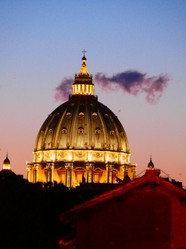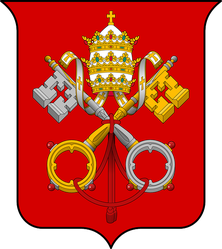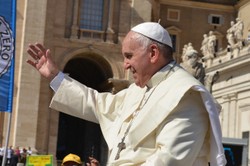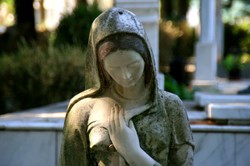The book is valuable in its debunking anti-Ratzinger myths that seem to have arisen from the theologian, the late Hans Kung. Kung claimed that Ratzinger had left a post at Tubingen University because he had problems with radical students. The book states that this is untrue and that Ratzinger always enjoyed good relationships with students wherever he taught. Seewald also debunks Kung's claim that both he and Benedict had interviews with Pope Paul VI. While not denying that Kung was thus interviewed, he recounts Benedict's statement that no such interview happened in his own case. In this book Kung comes across as somewhat unreliable and bent on self-publicity, as opposed to the shy and humble Benedict. It is good to note that the two men were reconciled prior to Kung's death.
Kung has done little good for Benedict's reputation, and certainly did no good for Benedict's reputation as "the Panzer-cardinal", gained when he was in charge of the Holy Office, the department responsible for doctrine. The image of Benedict as a ruthless, conservative inquisitor bent on suppressing nice, liberal theologians was concocted at this time. Seewald states with success that this was a false image and that Benedict was neither liberal nor conservative, but was a churchman who saw the need for change, but did not change for change's sake. Nor was he one who was blown hither and thither by the changing winds of the times or intellectual fads and fashions. This is a mark of a great mind.
Benedict's clash with some liberal theologians, Seewald thinks, was to preserve the legacy of the Second Vatican Council, which he believed was being misappropriated by liberal theologians. As one responsible for steering the council through its difficult passage he was committed. In this claim I believe that Seewald is completely correct. Great minds like Benedict's can never be pigeon-holed into simplistic, stereotypical. It is a sad fact that liberals claim to oppose stereotyping, but are hugely guilty of themselves stereotyping their opponents.
This is a good book well-worth reading. I commend it to readers.
I am an Amazon associate and earn money from qualifying links on this page.






 Pilgrimage. A review26 days ago
Pilgrimage. A review26 days ago
 Leo the Fourteenthon 05/09/2025
Leo the Fourteenthon 05/09/2025
 The Melsonby Hoardon 03/25/2025
The Melsonby Hoardon 03/25/2025




Comments
The pope did not design the garden, but his successor in the Vatican does not deal with matters of the gardening kind, he leaves the gardeners to deal with them. The Catholic Church is authoritarian about matters of Faith and morals, but as to other matters it is easy going.
Thank you!
It intrigues me what that private garden kept as plant types.
Might Benedict XVI have planned what that garden offered or must such decisions be by the gardeners alone or in conjunction with their gardening superiors, with or without papal say?
He had a private garden but he had gardeners.
The second paragraph to the first subheading, Counteracting influences, considers that the future Benedict XVI lived with his parents in a "small house with a large garden where he [the future pope's father] grew vegetables."
Is it known whether or not Joseph Ratzinger as Joseph Ratzinger and then as spiritual position-holder of positions culminating in his papal role pursued that paternal gardening interest?
I think that the arcane world of security is beyond my sphere of competence.
Thank you!
Vatican City has among its residents Pope Francis, correct?
Might Vatican City have cooperative or separate administration from the Vatican?
(So would it be more difficult for leaked information regarding Pope Francis than his predecessors?)
The Vatican is a place prone to leaks of information, so some people get to know in advance.
Thank you!
But the top administrators in the Vatican probably get advance notice of an abdication, correct?
It's not like the Pope mentions that he plans to say "Hello (or Good day or Good morning)" when he shows up for the crowds even as he tells his fellow Vatican-ites nothing about it working in a surprise abdication, correct?
(My apologies if the above scenario would sound a bit facetious, something I would not want thought papal-ly or Vatican-ly.)
Correct, they do not need permission, but they do not have to let the cardinals know their abdication speech. No one has thebrightbto see the speech in advance.
Thank you!
Popes perhaps do not need permission from anyone -- such as the group that elected them -- to abdicate, correct?
But would they perhaps let others -- such as the group that elected them -- view their abdication speech before its presentation?